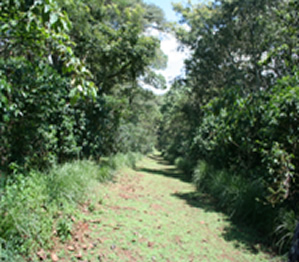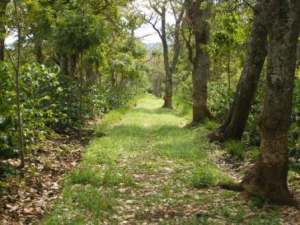መግቢያ

The Horticultural Genetic Resources Department’ is one of the technical departments of the Institute of Biodiversity Conservation (EBI) mandated to undertake conservation and ensure sustainable utilization of horticultural genetic resources. The department has conducted several exploration and collection missions in different parts of the country so as to collect and conserve the diversity of horticultural genetic resources. Often, the exploration and collection missions are prioritized on the basis of the economic importance, genetic diversity and degree of threat on the crop in question. The germplasm collected over the years are being conserved using appropriate conservation strategies depending on the storage behavior of the species. i.e. cold storage and field gene bank.. Currently, many spices and vegetables accessions are being conserved in the cold storage facilities of the institute.
Field Gene Banks
Many horticultural crop species have seeds that cannot tolerate desiccation and low temperatures. These species have ‘recalcitrant’ seeds as a result they cannot be conserved in ordinary cold storage facilities. Therefore, species with recalcitrant types of seeds, and those species that propagate vegetatively are conserved in field gene banks as live collections. Currently, 5238 accessions of coffee, 270 accessions of root and tuber crops and 69 accessions of herbs and spices are conserved in Bedesa and Choche field genebanks.
የጮጬ መስክ ጅን ባንክ
 Choche field genebank is located in Oromia Regional State in Jimma Zone, Goma Woreda near Agaro town at approximately 1600 masl, at 7o54’ N and 36o39’ E. It has a total area of 21 hectares, and was established two decades ago mainly for conserving coffee genetic resources of the country. Currently, however, 12 species of horticultural genetic resources are being conserved in the field genebank.
Choche field genebank is located in Oromia Regional State in Jimma Zone, Goma Woreda near Agaro town at approximately 1600 masl, at 7o54’ N and 36o39’ E. It has a total area of 21 hectares, and was established two decades ago mainly for conserving coffee genetic resources of the country. Currently, however, 12 species of horticultural genetic resources are being conserved in the field genebank.

 Bedessa field genebank was established in 2002 primarily for conserving Harar coffee germplasm. The field genebank is located in Oromia Regional State, West Harerghe Zone, Kuni Woreda near Bedessa town, at 8o53′ N and 40o46′ E. It has a total land area of 7.8 hectares. Since its establishment different collection missions were carried out in Harar coffee growing areas of the country, and a total of 738 germplasm were collected and conserved in the field genebank. Coffee Berry Disease (CBD) is more pronounced in Harerghe area and it is the main reason for the declining interest of farmers in the coffee production. Recently, in the absence of reliable option for CBD farmers are obliged to switch their attention more towards chat production. As a result, there is a huge land use shift in favor of chat production in the area. Compared to the size of damage incurred on Harar coffee genetic resources, however, the present holding is not adequate and hence, further collection missions should be initiated in areas that have not covered in the previous collection missions.
Bedessa field genebank was established in 2002 primarily for conserving Harar coffee germplasm. The field genebank is located in Oromia Regional State, West Harerghe Zone, Kuni Woreda near Bedessa town, at 8o53′ N and 40o46′ E. It has a total land area of 7.8 hectares. Since its establishment different collection missions were carried out in Harar coffee growing areas of the country, and a total of 738 germplasm were collected and conserved in the field genebank. Coffee Berry Disease (CBD) is more pronounced in Harerghe area and it is the main reason for the declining interest of farmers in the coffee production. Recently, in the absence of reliable option for CBD farmers are obliged to switch their attention more towards chat production. As a result, there is a huge land use shift in favor of chat production in the area. Compared to the size of damage incurred on Harar coffee genetic resources, however, the present holding is not adequate and hence, further collection missions should be initiated in areas that have not covered in the previous collection missions.